
GAG LAWYERS -
GROVER & GROVER ADVOCATES

GAG LAWYERS -
GROVER & GROVER ADVOCATES

Property disputes are not unusual felony conflicts that stand up between people or entities over possession, ownership, use, or rights related to actual assets. These disputes can contain residential, business, or agricultural properties and might arise because of various motives, along with conflicting ownership claims, boundary disputes, breach of contracts, easement issues, inheritance conflicts, and landlord-tenant disputes.
Resolving belongings disputes normally entails criminal procedures and may require the intervention of courts or alternative dispute decision techniques. Here are some common styles of belonging disputes:
1) Ownership Disputes: These disputes get up when multiple events declare ownership rights to belongings. It may additionally involve conflicting deeds, unclear barriers, or disputes regarding the switch of assets.
2) Boundary Disputes: Boundary disputes arise when there’s a disagreement among neighbouring asset owners about the location of the asset's boundaries. This can involve encroachments, disagreements over fence lines, or rights-of-way.
3) Landlord-Tenant Disputes: These disputes stand up between landlords and tenants and can contain troubles along with non-price of rent, hire violations, assets protection disputes, eviction court cases, or safety deposit disputes.
4) Easement Disputes: Easement disputes arise when there is a confrontation over the right to use or access a portion of some other person’s property. It may additionally contain claims associated with rights-of-way, software easements, or other shared-use agreements.
5) Nuisance Claims: Nuisance claims involve disputes over the use or circumstance of belongings that interfere with the reasonable use or entertainment of neighbouring houses. It may also consist of troubles along with noise disturbances, environmental pollutants, or offensive odours.
6) Adverse Possession Claims: Adverse ownership claims arise while someone occupies and makes use of some other person’s belongings without permission for a detailed period, leading to a claim of ownership primarily based on non-stop and open ownership.
7) Inheritance Disputes: Inheritance disputes contain conflicts over the distribution of property following the loss of life of an belongings owner. It might also involve challenges to wills, claims of undue influence, or disputes over the translation of testamentary files.
8) Resolving belongings disputes regularly entails negotiation, mediation, or arbitration to reach an agreement between the events concerned. If a resolution can’t be reached through the opportunity approach, the dispute may be taken to court, where a choice will make a final dedication primarily based on relevant laws, proof, and legal arguments offered with the aid of the events.
It is vital to discuss with a certified legal professional who specializes in property regulation to recognize your rights, duties, and the best legal avenues to address your particular assets dispute.

Buying and promoting belongings is ruled with the aid of property legal guidelines that vary from usa to country. While it’s far essential to consult with a neighborhood legal professional or actual estate expert to understand the unique legal guidelines and tactics applicable to your jurisdiction, here are a few widespread steps involved in shopping for and promoting property:
Buying Property:
1) Research and Property Search: Begin via learning the property marketplace and determining your requirements and finances. Identify the region, type of assets, and any specific features or services you desire. Engage in belongings searches through on-line listings, real property sellers, or belongings databases.
2) Property Inspection and Due Diligence: Once you become aware of a assets of hobby, arrange for a thorough inspection to assess its circumstance, potential troubles, and suitability for your needs. Conduct due diligence by using reviewing assets files, including identify deeds, surveys, and any relevant permits or approvals.
3) Offer and Negotiation: If you make a decision to proceed with shopping the assets, make an offer to the seller. Negotiate the price, terms, and situations of the sale, together with any contingencies or unique requests.
4) Sale Agreement and Contract: Once the provide is widespread, formalize the transaction through a sale agreement or settlement. This prison document outlines the terms and conditions of the sale, consisting of the purchase rate, fee terms, asset description, and obligations of both parties.
5) Financing and Conveyancing: Arrange financing if necessary, which includes acquiring a loan or securing finances for the acquisition. Engage a conveyancer or a real property attorney to deal with the criminal factors of the transaction, together with a name search, getting ready legal documents, and facilitating the switch of possession.
6) Property Transfer and Settlement: Complete the necessary office work, gain clearances, and satisfy any criminal requirements to switch ownership. Pay the acquisition charge, together with any applicable taxes, prices, or obligations. Once the agreement is complete, ownership of the property is transferred to you, and you receive the keys to the assets.
Selling Property:
1) Property Valuation and Preparation: Determine the marketplace fee of your house through a professional valuation or appraisal. Prepare the property on the market by way of making important upkeep, renovations, or upgrades to beautify its attraction and price.
2) Marketing and Listing: Engage an actual estate agent or marketplace the property yourself to attract capable customers. Advertise the assets via diverse channels, including online listings, print media, signage, and open residence viewings.
3) Buyer Negotiation and Acceptance: Evaluate gives obtained from searching for what you offer and negotiate the phrases and conditions of the sale. Once you accept a suggestion, both parties can continue to the subsequent steps.
4) Sales Contract and Conveyancing: Engage a conveyancer or real estate legal professional to put together the income settlement and handle the criminal elements of the transaction. The settlement should consist of the agreed-upon phrases, conditions, and obligations of each event.
5) Property Settlement and Transfer: Coordinate with the purchaser’s consultant and your conveyancer to complete the necessary office work, clearances, and prison necessities for the assets switch. Receive the acquisition charge, and as soon as the agreement is whole, transfer possession to the client.
It is critical to word that assets legal guidelines can be complex, and the above steps provide a fashionable assessment. It is recommended to are looking for prison advice and steering from experts acquainted with the belongings laws and approaches in your unique jurisdiction to ensure compliance and defend your interests at some point of the shopping for or selling method.

The costs, consequences, and punishments in assets law cases can range relying on the jurisdiction and the precise offense devoted. The following are a few commonplace fees and related outcomes which can stand up in belongings law instances:
1) Trespassing: Trespassing involves unlawfully coming into or last on any other person’s belongings without permission. The penalties for trespassing can vary based totally at the circumstances and jurisdiction however may also include fines, network carrier, or in some instances, imprisonment.
2) Theft or Burglary: Theft or housebreaking offenses involve the unlawful taking or elimination of someone else’s assets. Penalties for robbery or burglary rely upon the fee of the stolen assets, previous convictions, and the jurisdiction’s laws. Punishments can variety from fines to imprisonment, with extra severe consequences for offenses related to higher-price property or aggravated circumstances.
3) Fraud or Embezzlement: Fraud or embezzlement cases involve deceit or misrepresentation to wrongfully gather or manage someone else’s property for private gain. Penalties for fraud or embezzlement can include fines, restitution, and imprisonment, relying at the jurisdiction and the quantity of money or assets involved.
4) Property Damage or Vandalism: Property harm or vandalism cases contain intentionally destructive or destroying a person else’s assets. The penalties for property damage or vandalism can consist of fines, restitution for upkeep, community carrier, or imprisonment, relying at the extent of the harm and the jurisdiction’s laws.
5) Landlord-Tenant Offenses: Landlord-tenant disputes can involve various offenses including failure to go back a security deposit, illegal eviction, failure to provide vital repairs, or violation of apartment legal guidelines. Penalties for landlord-tenant offenses can consist of fines, restitution to the affected party, or courtroom-ordered treatments including lease termination or assets repairs.
6) Real Estate Fraud: Real property fraud cases contain deceptive practices in property transactions, along with mortgage fraud, falsifying files, or misrepresentation of assets value or circumstance. Penalties for actual estate fraud can include fines, restitution, and imprisonment, relying on the jurisdiction and the quantity of the fraudulent activity.
It’s critical to word that the unique charges, consequences, and punishments can range extensively depending on the jurisdiction and the circumstances of every case. Laws and regulations concerning belongings offenses can also exchange over time. Therefore, it is beneficial to discuss with a qualified attorney or legal professional who’s familiar with the assets laws for your jurisdiction to obtain accurate and updated statistics concerning expenses, penalties, and punishments associated with belongings regulation cases.

Property disputes can stand up in various forms, concerning disagreements or conflicts associated with the ownership, use, possession, or rights related to actual assets. Some not unusual kinds of belongings disputes below assets instances encompass:
1) Boundary disputes: These disputes contain disagreements over the place or demarcation of property obstacles among adjoining landowners.
2) Title disputes: Title disputes get up whilst there may be a disagreement or uncertainty concerning the felony ownership or rights to a property.
3) Easement disputes: Easements are felony rights that allow a person or entity to apply or get admission to another person’s assets for a particular reason. Easement disputes may also contain problems associated with the scope, volume, or termination of these rights.
4) Nuisance disputes: Nuisance disputes arise when one birthday party’s use or entertainment of their property is interfered with or harmed by the moves or sports of another party.
5) Trespass disputes: Trespass disputes stand up whilst a person unlawfully enters or uses any other person’s assets with out permission.
6) Landlord-tenant disputes: These disputes commonly occur between landlords and tenants and might involve disagreements over hire, assets renovation, eviction, or breach of hire agreements.
7) Construction disputes: Construction disputes can stand up among property proprietors and contractors, subcontractors, or construction specialists regarding issues consisting of nice of labor, delays, or charge disputes.
8) Adverse possession claims: Adverse possession refers to a prison doctrine where a person can collect possession of a assets by using brazenly, notoriously, and constantly occupying it for a specific time frame, typically in violation of the real owner’s rights.
9) Lease disputes: Lease disputes may additionally occur among landlords and tenants and might involve disagreements over rent terms, rent increases, upkeep, or early termination of the hire.
10) Co-possession disputes: Co-ownership disputes get up when a couple of individuals or entities mutually very own a assets and feature conflicting hobbies or disagreements concerning the use, management, or sale of the property.
It’s crucial to note that the precise styles of belongings disputes and their felony implications may range primarily based on jurisdiction and neighborhood laws. Consulting with a qualified attorney acquainted with belongings regulation in your place is recommended if you are involved in a property dispute.
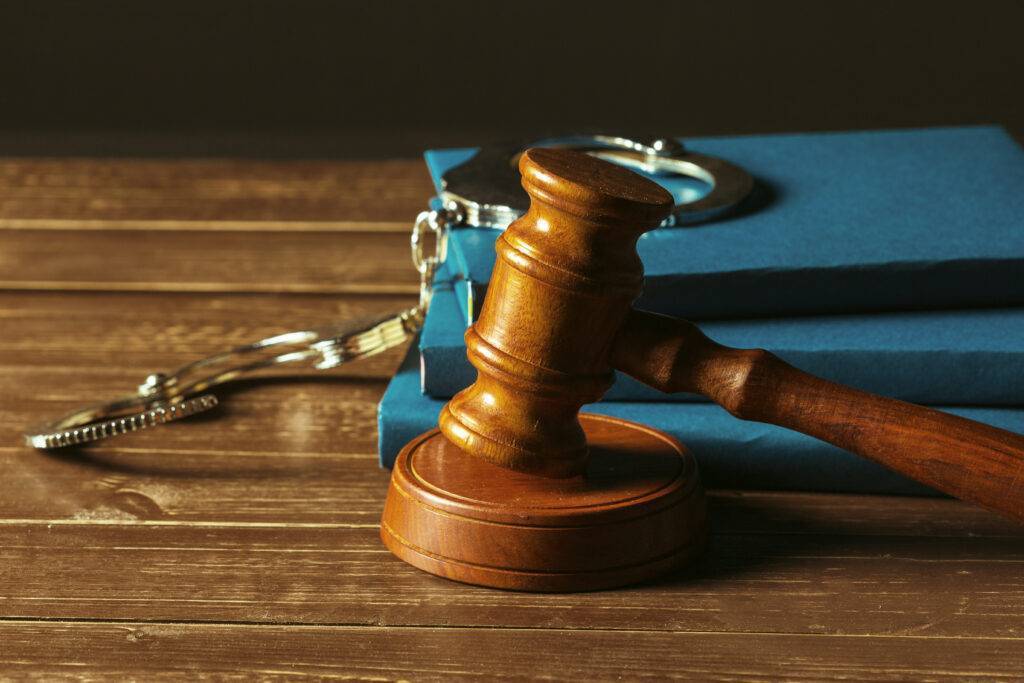
Property legal guidelines vary throughout jurisdictions, and the unique acts and provisions may also range thus. However, I can provide you with a top level view of some common acts and provisions which are typically found in assets law:
1) Transfer of Property Act: This act governs the switch of assets rights from one person to some other. It offers with various components inclusive of the sale, hire, loan, and gifting of assets.
2) Registration Act: The Registration Act mandates the registration of diverse belongings transactions, including sale deeds, hire agreements, mortgages, and gift deeds. It guarantees the authenticity and enforceability of these documents.
3) Land Acquisition Act: This act provides the legal framework for the acquisition of private land via the government for public functions. It establishes techniques for repayment to landowners and other associated matters.
4) Real Estate (Regulation and Development) Act (RERA): RERA is an act that regulates the actual property sector and objectives to protect the interests of homebuyers. It mandates the registration of real estate projects, disclosure of project information, and establishes mechanisms for dispute decision.
5) Rent Control Acts: Rent manipulate acts or tenancy laws adjust the connection between landlords and tenants. They prescribe the rights and obligations of each events, rent manipulate mechanisms, eviction approaches, and dispute decision approaches.
6) Succession Laws: Succession laws govern the transfer of property upon the demise of an man or woman. These legal guidelines decide how belongings is inherited, the rights of heirs, and the system for wills and inheritance.
7) Co-ownership and Partition Laws: These laws deal with situations where a couple of individuals very own assets together. They define the rights and responsibilities of co-owners and offer mechanisms for the partition or department of at the same time owned assets.
8) Environmental Protection Laws: Environmental legal guidelines may also encompass provisions related to belongings, specifically in instances concerning conservation, safety of natural assets, zoning rules, and land use planning.
9) Intellectual Property Laws: Intellectual assets legal guidelines defend intangible assets rights, including patents, emblems, copyrights, and change secrets. These legal guidelines grant specific rights to individuals or entities for their innovative or modern works.
It’s vital to be aware that this is not an exhaustive listing, and property legal guidelines can range significantly relying on the jurisdiction. For correct and specific facts, it’s far really useful to seek advice from the property legal guidelines of the relevant jurisdiction or are seeking criminal counsel.
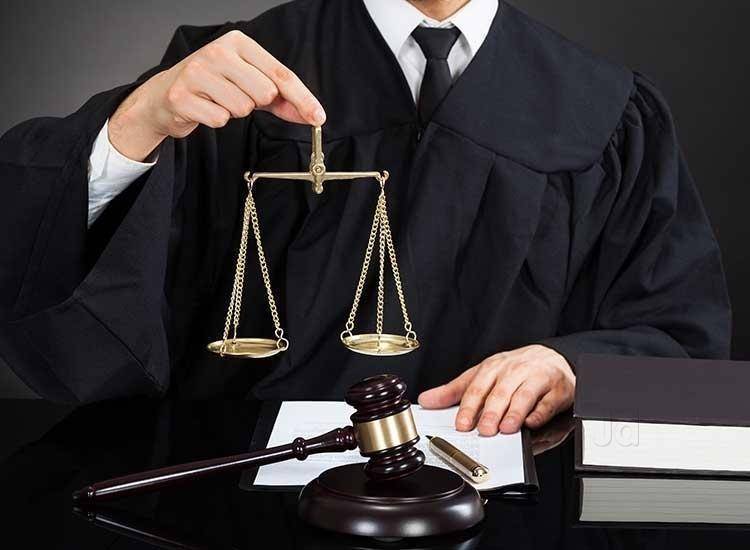
A assets attorney plays a critical function in assets cases via supplying legal expertise and illustration to customers concerned in property disputes or transactions. Here are a few key roles and duties of a property legal professional in assets cases:
1) Legal Advice: Property attorneys provide felony recommendation to people, agencies, or businesses regarding assets-associated topics. They assess the prison implications of assets transactions, disputes, or different belongings-related troubles and endorse customers on their rights, duties, and to be had felony options.
2) Property Transactions: Property legal professionals assist customers in various assets transactions, along with buying, selling, leasing, or mortgaging assets. They assessment and prepare legal files, together with sale agreements, rent agreements, deeds, and mortgages, to make sure that the rights and pastimes in their customers are blanketed.
3) Due Diligence: Property attorneys conduct thorough due diligence on homes to perceive any prison issues or risks associated with them. They overview property files, titles, zoning regulations, encumbrances, and other relevant records to ensure that their clients have clear ownership and ownership rights over the property.
4) Title Verification: Property attorneys affirm property titles to ensure their authenticity and legality. They seek public data, behavior identify searches, and overview name deeds to become aware of any claims, liens, or disputes that could have an effect on the assets’s possession or transferability.
5) Dispute Resolution: Property attorneys constitute customers in belongings disputes, which includes boundary disputes, title disputes, landlord-tenant conflicts, construction disputes, and other property-related conflicts. They examine the felony components of the dispute, collect proof, formulate felony strategies, and constitute their customers in negotiations, mediation, arbitration, or litigation complaints.
6) Legal Documentation: Property lawyers put together and assessment felony documents related to assets instances, together with prison notices, pleadings, petitions, affidavits, and contracts. They ensure that these files observe felony requirements and correctly represent their clients’ interests.
7) Negotiation and Settlement: Property legal professionals interact in negotiations with opposing events or their felony representatives to reach favorable settlements for his or her clients. They advise for his or her clients’ hobbies and goal to clear up assets disputes through negotiated agreements, minimizing the want for protracted litigation.
8) Court Representation: When belongings disputes amplify to court docket court cases, assets attorneys constitute their clients in hearings, trials, or appeals. They gift prison arguments, study witnesses, move-have a look at opposing events, and advocate for their clients’ rights and hobbies earlier than the court docket.
9) Legal Research and Analysis: Property legal professionals behavior enormous research on belongings laws, policies, precedents, and applicable case law to strengthen their customers’ instances. They analyze felony issues, determine ability dangers, and provide knowledgeable recommendation primarily based on their studies findings.
10) Client Advocacy: Property attorneys act as advocates for their clients, safeguarding their rights and interests at some stage in the legal system. They prioritize their clients’ goals, speak with them regularly, and offer updates on case progress and legal trends.
It’s critical to seek advice from a certified property attorney who specializes inside the precise property laws and guidelines of the relevant jurisdiction to make sure effective illustration and guidance in belongings instances.
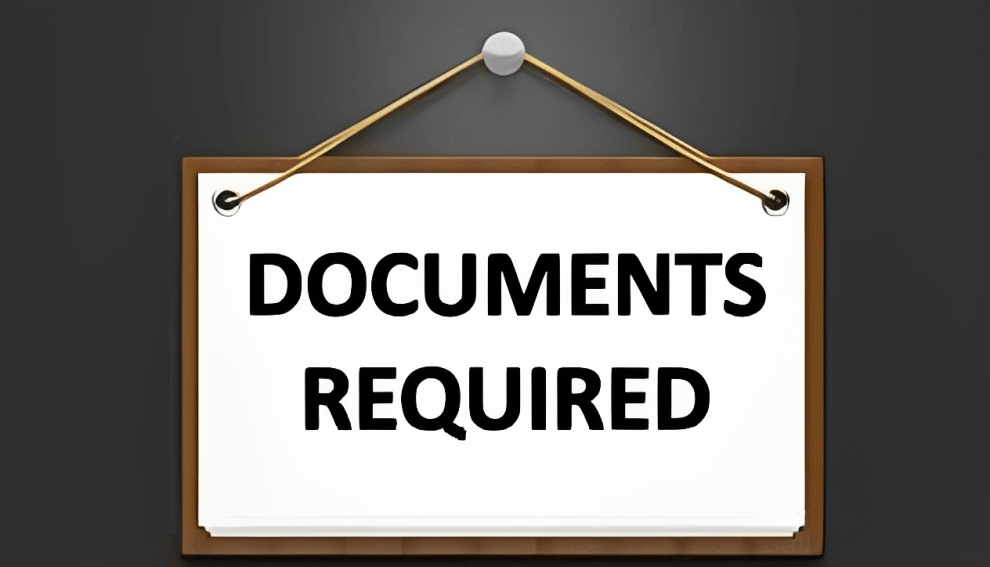
The unique documents required to document a case associated with a assets dispute can range relying at the jurisdiction and the character of the dispute. However, right here are some normally required files:
1. Complaint/Petition: The grievance or petition is the primary report that initiates the legal action. It should provide a clean and concise declaration of the statistics and prison grounds for the assets dispute.
2. Affidavit: An affidavit is a sworn assertion of records relevant to the belongings dispute. It may additionally include details about the parties worried, the character of the dispute, and any helping evidence or documentation.
3. Property Documents: Various belongings-associated files are commonly required, together with:
4. Title Deeds: Copies of title deeds setting up possession or possession rights over the belongings.
5. Sale Deed or Lease Agreement: Copies of the sale deed or rent settlement to establish the terms and situations of the assets transaction.
6. Encumbrance Certificate: A certificate issued by means of the registrar’s office that shows any encumbrances or fees on the assets, such as mortgages, liens, or easements.
7. Survey or Boundary Documents: Documents, surveys, or maps that set up the belongings’s limitations and physical characteristics.
8. Notice/Communication: If there had been earlier tries to solve the dispute through negotiations or criminal notices, copies of such communications must be protected.
9. Evidence/Documents helping the dispute: Any documents supporting your claims or defenses in the property dispute, such as pix, correspondence, contracts, receipts, or expert reports, ought to be included.
10. Witness Statements: If there are witnesses who can offer relevant testimony concerning the dispute, their statements or affidavits can be required.
11. Court Fees: Payment of the applicable courtroom expenses is generally required at the time of submitting the case. The amount can range depending on the jurisdiction and the character of the dispute.
It’s essential to word that the specific report necessities may also range based totally at the form of belongings dispute and the guidelines and procedures of the particular jurisdiction. It is recommended to discuss with a local lawyer or are looking for prison advice to decide the exact files wished for filing a assets dispute case in your precise jurisdiction.
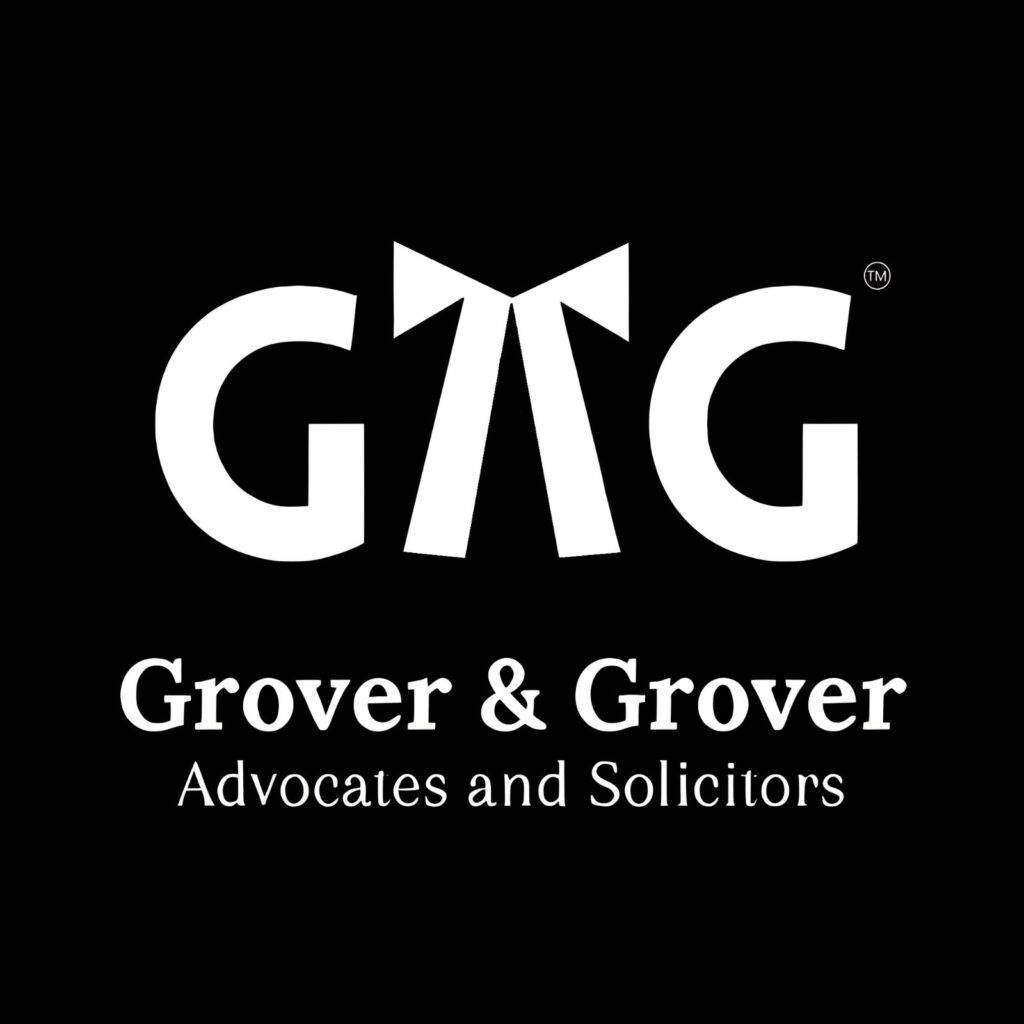
Grover & Grover, Advocates can provide precious help in assets instances by using imparting their knowledge and felony offerings tailored to the specific needs of customers. Here are some ways they could help:
1) Legal Advice and Assessment: Grover & Grover, Advocates can investigate the deserves of a assets case through reviewing the data, files, and criminal problems involved. They can offer clients with sound legal recommendation concerning the strengths, weaknesses, and potential consequences of the case.
2) Case Strategy and Planning: Based on their understanding and experience in property law, Grover & Grover, Advocates can broaden a strategic plan for dealing with the property case. They can analyze the legal aspects, discover key arguments, and determine the best course of motion to gain the patron’s objectives.
3) Document Review and Preparation: Property instances involve a vast quantity of documentation. Grover & Grover, Advocates can assist in reviewing and preparing the important legal documents, which includes lawsuits, petitions, affidavits, and contracts. They make sure that the files are accurate, complete, and follow legal requirements.
4) Representation in Negotiations: In property disputes, negotiations can be important in achieving a positive decision with out resorting to litigation. Grover & Grover, Advocates can represent customers in negotiations with the opposing birthday party or their legal representatives. They suggest for their clients’ pursuits, guard their rights, and strive to reap a fair agreement.
5) Litigation and Court Representation: If a property case proceeds to litigation, Grover & Grover, Advocates can offer professional courtroom illustration. They deal with all elements of the litigation system, along with drafting pleadings, offering arguments, inspecting witnesses, cross-examining the opposing party’s witnesses, and making felony submissions earlier than the courtroom.
6) Evidence Gathering and Analysis: Grover & Grover, Advocates can help in accumulating and reading proof applicable to the assets case. They conduct investigations, reap expert evaluations if essential, and bring together the evidence important to guide the client’s claims or defenses.
7) Legal Research and Application of Laws: Property legal guidelines may be complicated and vary from jurisdiction to jurisdiction. Grover & Grover, Advocates live up to date with the ultra-modern legal trends and precedents in assets law. They conduct tremendous felony studies to make sure that the applicable laws and regulations are accurately implemented to the case.
8) Alternative Dispute Resolution (ADR): In some belongings instances, alternative dispute resolution techniques together with mediation or arbitration may be favored over conventional litigation. Grover & Grover, Advocates can manual clients through the ADR procedure, constitute their interests, and help them reach a decision this is exceptional and cost-powerful.
9) Client Advocacy and Support: Grover & Grover, Advocates prioritize their customers’ hobbies and work diligently to protect their rights during the assets case. They provide ordinary updates, clear verbal exchange, and guide to customers, ensuring that they’re properly-informed and empowered at some point of the criminal technique.
It’s essential to consult without delay with Grover & Grover, Advocates or any criminal specialists to talk about the precise info of your home case and understand the services they offer in extra detail.
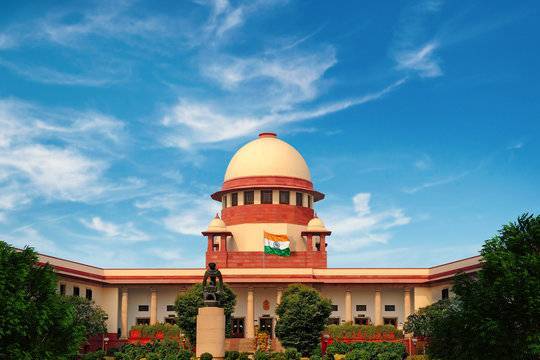
There had been several great cases related to assets law that have been heard and decided by the Supreme Court and High Courts in numerous international locations. Here are a few examples:
1) Kelo v. City of New London (2005) – This case become heard by using america Supreme Court. It treated the problem of eminent area and the authorities’s energy to take private property for public use. The courtroom ruled that the metropolis’s taking of private assets to promote economic development certified as a public use beneath the Fifth Amendment.
2) Olga Tellis v. Bombay Municipal Corporation (1985) – This case became heard via the Supreme Court of India. It worried the eviction of pavement dwellers in Mumbai. The court docket held that the right to livelihood is a fundamental proper underneath the Indian Constitution and that the government can’t deprive people of their houses with out offering alternative preparations.
3) Poletown Neighborhood Council v. City of Detroit (1981) – This case became heard with the aid of the Michigan Supreme Court inside the United States. It dealt with the eminent domain trouble in which the city of Detroit sought to take personal belongings for a General Motors plant. The courtroom ruled in prefer of the metropolis, pointing out that the economic benefits of the venture justified the use of eminent area.
4) Maneka Gandhi v. Union of India (1978) – This landmark case changed into heard via the Supreme Court of India. It worried the interpretation of the proper to life and private liberty underneath Article 21 of the Indian Constitution. The courtroom held that the right to tour overseas is encompassed in the proper to personal liberty, and any law restricting this right must meet the test of reasonableness.
5) Bank Mellat v. HM Treasury (2013) – This case turned into heard through the Supreme Court of the United Kingdom. It handled the problem of property rights in the context of financial sanctions imposed on an Iranian financial institution by means of the UK authorities. The court held that the government’s moves were illegal as that they had did not provide the bank with a honest listening to and violated its belongings rights.
These are only a few examples of essential property law cases that have been decided through the Supreme Court and High Courts in extraordinary jurisdictions. The specific cases may additionally range depending at There had been several great cases related to assets law that have been heard and decided by the Supreme Court and High Courts in numerous international locations. Here are a few examples:
1) Kelo v. City of New London (2005) – This case become heard by using america Supreme Court. It treated the problem of eminent area and the authorities’s energy to take private property for public use. The courtroom ruled that the metropolis’s taking of private assets to promote economic development certified as a public use beneath the Fifth Amendment.
2) Olga Tellis v. Bombay Municipal Corporation (1985) – This case became heard via the Supreme Court of India. It worried the eviction of pavement dwellers in Mumbai. The court docket held that the right to livelihood is a fundamental proper underneath the Indian Constitution and that the government can’t deprive people of their houses with out offering alternative preparations.
3) Poletown Neighborhood Council v. City of Detroit (1981) – This case became heard with the aid of the Michigan Supreme Court inside the United States. It dealt with the eminent domain trouble in which the city of Detroit sought to take personal belongings for a General Motors plant. The courtroom ruled in prefer of the metropolis, pointing out that the economic benefits of the venture justified the use of eminent area.
4) Maneka Gandhi v. Union of India (1978) – This landmark case changed into heard via the Supreme Court of India. It worried the interpretation of the proper to life and private liberty underneath Article 21 of the Indian Constitution. The courtroom held that the right to tour overseas is encompassed in the proper to personal liberty, and any law restricting this right must meet the test of reasonableness.
5) Bank Mellat v. HM Treasury (2013) – This case turned into heard through the Supreme Court of the United Kingdom. It handled the problem of property rights in the context of financial sanctions imposed on an Iranian financial institution by means of the UK authorities. The court held that the government’s moves were illegal as that they had did not provide the bank with a honest listening to and violated its belongings rights.